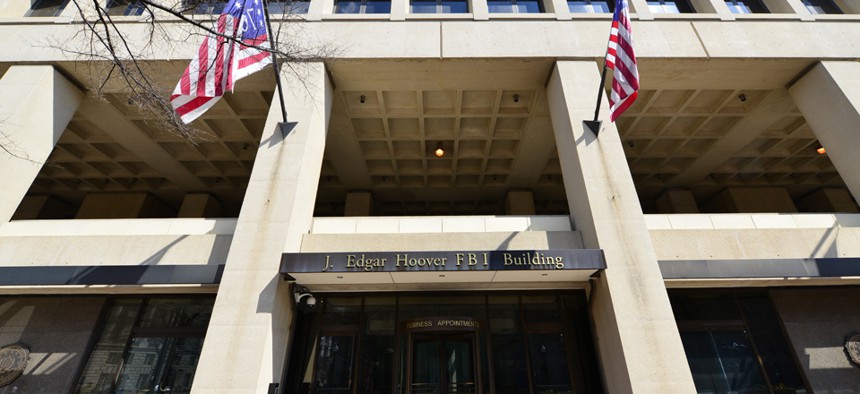FBI Explores Commercial Cloud Capabilities

The FBI is headquartered in the J. Edgar Hoover Building in Washington, DC. Richard Cavalleri/Shutterstock.com
Needs 1 petabyte of storage, which is enough to house the U.S. population’s DNA and then clone it twice.
The story has been updated to remove a reference to a separate FBI cloud request for proposals, also issued July 11.
The FBI is pondering a move to online storage of criminal records, fingerprints and other biometric data, partly to expedite rap sheet searches, according to bureau contracting officers and consultants.
The relocation of criminal justice data would not be without challenges, but could ultimately lower costs and leave crooks with less room to hide.
A July 11 solicitation states the FBI seeks industry feedback on deploying commercial cloud services within its facilities.
Specifically, the bureau wants to rent hardware -- servers, storage, networks, and other basic computing resources -- from a remote data center provider, such as, for example, Amazon -- but in a way that would allow FBI personnel to control the services. The agency would have to be able to run its own operating systems and applications, the notice states.
The system requirements for each computer center include 1 petabyte of data, which according to Adfonic, is enough to store the DNA of the U.S. population and then clone the population -- twice.
The Criminal Justice Information Services arm of the bureau "seeks information regarding commercially available solutions to provide on-premise, locally managed (within CJIS) Infrastructure as a Service (IaaS), 'cloud in a box'" that would support "two physical data center locations," contracting officers stated.
It "would be reasonable" to expect the FBI to store biographic background histories, fingerprints and other biometrics used in identifying suspects if the bureau buys a cloud service, said Paul Wormeli, a former Justice Department official who now advises the department on technology.
To lower the costs of future expansion, the FBI also is interested in connecting its own existing servers and storage hardware to the cloud, the notice states.
FBI regulations for cloud companies that want to provide remote access to criminal records are strict. The contractors themselves must undergo criminal history checks and agree to special information-sharing arrangements.
Audits of cloud setups at state police departments have turned up compliance problems, CJIS officials recently told Nextgov. However, major providers, including Microsoft, say they are adapting to meet law enforcement demands. In Indiana, Web services company InterAct has made it possible for police to retrieve records on their laptops, iPhones, tablets and Samsung Android-based devices.
FBI officials were not immediately able to comment.
(Image via Richard Cavalleri/Shutterstock.com)






